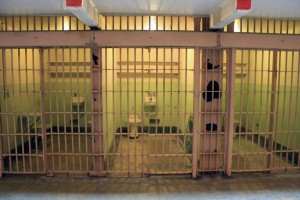Last week, the unicameral legislature of the state of Nebraska passed a law, over the governor’s veto, ending the death penalty in that state. Nebraska is not considered, by any stretch of the imagination, to be a hotbed of liberal activism (the state has voted Republican in every presidential election since 1976 and has two Republican senators), so the decision of the legislature to shift in this policy area came as a surprise to some. There is some question as to what will happen to those who are currently on death row in the state (ten people at this time), with the governor and the attorney general arguing the new law does not apply to those who have already received the death sentence. The answer to this question will likely be determined in the court system. The shift in opinion in Nebraska, though, seems to be reflective of the shift nationwide on the issue of capital punishment. While a majority still supports it, it is just barely a majority at about 56% according to the Pew Research Center.
 How should we, as believers, approach this question? Many of us probably have not had to think too much on this issue, since Michigan did away with the death penalty in 1846 and is the first English-speaking territory in the world to do so. Yet several states retain capital punishment (31 at this time) as does the federal government, so it remains an issue on which we need to be prepared to give an answer. I should begin by saying that I do support capital punishment, even if it’s an uneasy support in its current context. I do so because I believe there is Scriptural support for it going back to the Noahic Covenant in Genesis 9:5-6. I also believe that it is supported in the New Testament (Romans 13:1-7 and 1 Peter 2:13-17). Yet each of us should be uneasy about how the death penalty is implemented in the US (much less in less reputable nations throughout the world). Since 1973, over 150 people serving on death row have been exonerated and 20 of those had DNA evidence play a substantial role in establishing their innocence. The truth is, sometimes in our desire to see the most heinous crimes punished, we can rush to judgment without carefully considering all the facts. Such a rush can – and has – led to innocent people paying the ultimate penalty for a crime they did not commit. Furthermore, according to the US Department of Justice, the average time spent on death row in 2012 was 190 months – nearly 16 years. The toll that takes on a person is something that we cannot begin to fathom. These are but two aspects of the death penalty that are deserving of thoughtful discussion free from ideological polemics.
How should we, as believers, approach this question? Many of us probably have not had to think too much on this issue, since Michigan did away with the death penalty in 1846 and is the first English-speaking territory in the world to do so. Yet several states retain capital punishment (31 at this time) as does the federal government, so it remains an issue on which we need to be prepared to give an answer. I should begin by saying that I do support capital punishment, even if it’s an uneasy support in its current context. I do so because I believe there is Scriptural support for it going back to the Noahic Covenant in Genesis 9:5-6. I also believe that it is supported in the New Testament (Romans 13:1-7 and 1 Peter 2:13-17). Yet each of us should be uneasy about how the death penalty is implemented in the US (much less in less reputable nations throughout the world). Since 1973, over 150 people serving on death row have been exonerated and 20 of those had DNA evidence play a substantial role in establishing their innocence. The truth is, sometimes in our desire to see the most heinous crimes punished, we can rush to judgment without carefully considering all the facts. Such a rush can – and has – led to innocent people paying the ultimate penalty for a crime they did not commit. Furthermore, according to the US Department of Justice, the average time spent on death row in 2012 was 190 months – nearly 16 years. The toll that takes on a person is something that we cannot begin to fathom. These are but two aspects of the death penalty that are deserving of thoughtful discussion free from ideological polemics.
I know – and understand – the desire we have to see the most horrific crimes punished. God’s Word does teach us, from beginning to end, just how sacred human life is, which is why the death penalty was instituted by God Himself. Yet, each of us who knows Christ as our Lord and Savior have had the most horrific crimes forgiven – sins against God Himself. We have had God’s Son take our place. What are we doing to make sure those who sit on death row have the opportunity to confess their sin and accept Christ? Do we view them as less than human, or as people who need Jesus…just like us? Just something to think about…

0 Comments